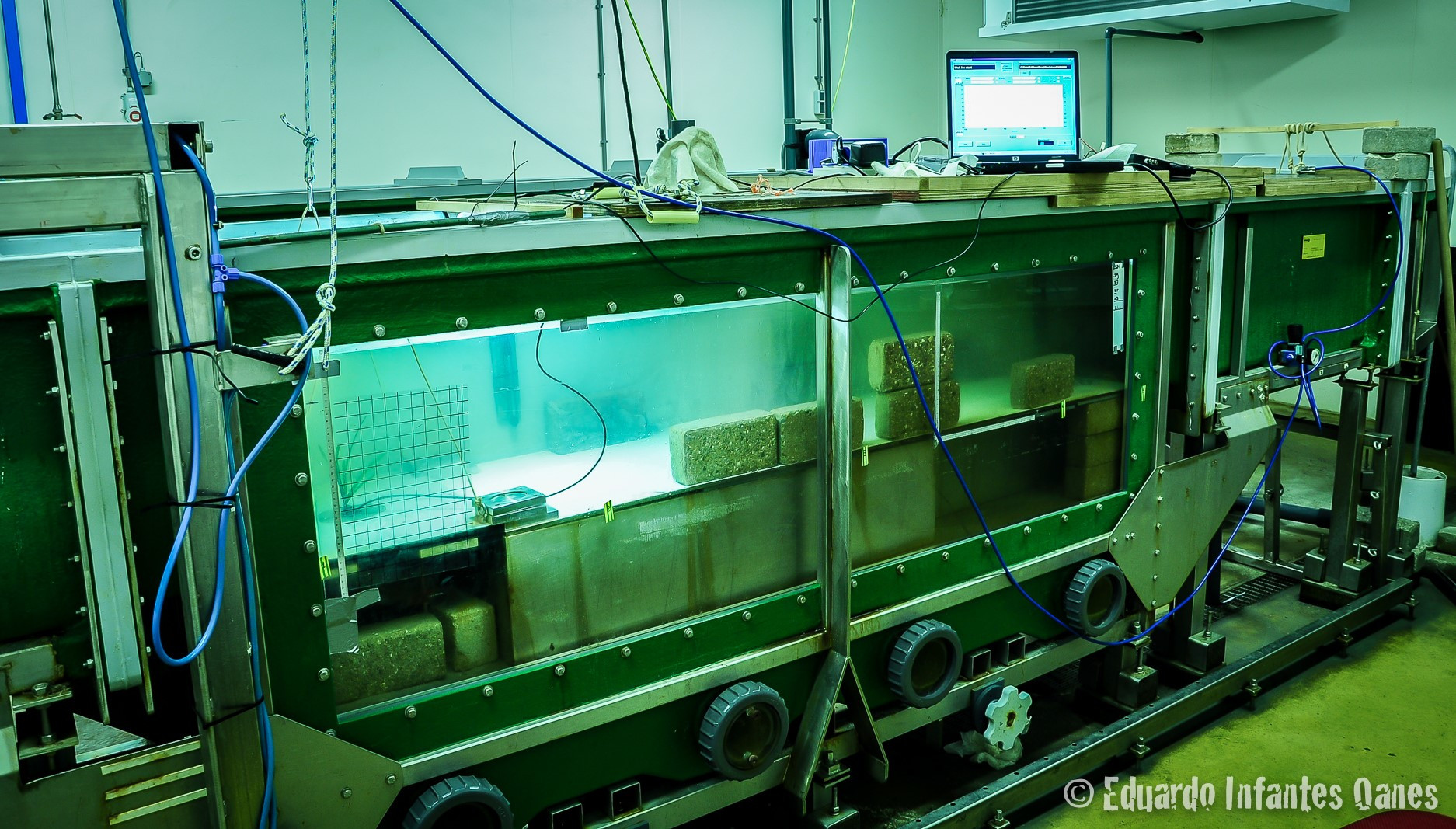Field flume studies
Field flume studies
To assess Global Change effects in estuarine ecosystems
The Department Estuarine and Delta Systems (EDS, Royal NIOZ Yerseke) investigates biophysical interactions, contributing to many questions in managing - and restoring - estuaries, delta’s and coastal systems. Biophysical interactions are key processes in delta’s, estuaries and other marine environments, affecting the geomorphological development, the sediment chemistry as well as functioning of organisms.

Flume studies
One way of investigating biophysical interactions is through flume studies: a flume is a system that allows controlling of physical forcing by generating currents or waves. Many flume systems are limited to the lab, where it is difficult to simulate the full complexity of an ecosystem. Therefore, at the EDS department, we are actively developing a series of field flumes. These will enable us to answer completely new research questions on the functioning and stability of physically driven intertidal and sub-tidal ecosystems.
We aim to start with providing the proof of principle of our new flume designs.
We will subsequently use these flumes to i) determine the effect of hydrodynamics on the biogeomorphic and biogeochemical functioning of key ecosystems both sub- and intertidal, ii) experimentally quantify the impact of climate change (e.g., sea level rise, enhanced storminess, anoxia) on key estuarine and coastal ecosystems and iii) determine how these effects differ along a depth zonation.